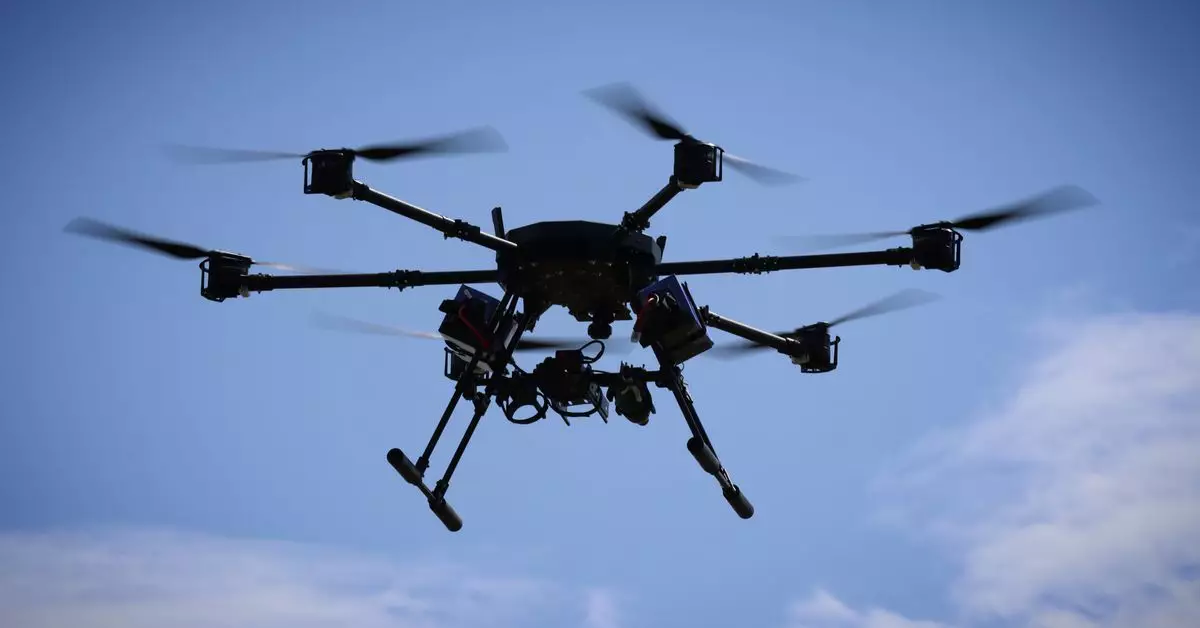As of today, law enforcement in Illinois is prohibited from attaching weapons to drones and using them for facial recognition unless it’s in the context of counter-terrorism or preventing imminent harm to life, or to ensure a suspect doesn’t escape. However, for the first time in Illinois, law enforcement is now allowed to fly over public events. This change comes about as a result of the Drones as First Responders Act that was signed into law today. The act modifies the Freedom from Drone Surveillance Act of 2014, which banned law enforcement from using drones to collect information in the state except in exceptional circumstances. The new act is designed to prevent incidents like the one at the Highland Park Fourth of July parade last year, which state senator Julie Morrison argued could have been prevented if not for the 2014 law.
The new bill prohibits law enforcement agencies from equipping or using on drones any lethal or non-lethal weapons such as firearms, weaponized lasers, kinetic impact projectiles, chemical agents or irritants. However, drones may be used to conduct infrastructure inspections and assist first responders. Law enforcement agencies are also required to destroy any information collected by drones within 30 days of collection unless it is relevant to an investigation. However, the new act makes exceptions if the data is used exclusively for training purposes or only contains metadata. Law enforcement agencies are also prohibited from selling any information collected by drones.
Weaponized Drones Banned in Other States
Illinois is not the only state to have banned weaponized drones. According to the National Conference of State Legislators, as of 2017, Maine, Nevada, North Carolina, Oregon, Vermont, Virginia and Wisconsin had all barred police from using armed drones. Florida banned it later that year. Ohio is currently considering a ban. It is an open question whether other forms of police robots should be allowed to kill suspects. San Francisco initially approved the use of robot deadly force in extreme situations last November, only to reverse the policy a week later after an outcry. Dallas used a bomb disposal robot to kill a deadly sniper in 2016.
Privacy Concerns Limit Facial Recognition Usage
The new act also limits the use of facial recognition by law enforcement out of concerns about drone surveillance and privacy. Law enforcement agencies are prohibited from using drones for facial recognition unless it is in the context of counter-terrorism or preventing imminent harm to life or property. Illinois is not the only state to have implemented restrictions on the use of facial recognition by law enforcement. Other states that have implemented similar restrictions include Massachusetts, Oregon, and Maine. The use of facial recognition technology by law enforcement has been a contentious issue in recent years due to concerns about privacy violations and racial bias.
In summary, the Drones as First Responders Act signed into law in Illinois today modifies the Freedom from Drone Surveillance Act of 2014. The new act prohibits law enforcement agencies from equipping drones with lethal or non-lethal weapons and using them for facial recognition unless it is in the context of counter-terrorism or preventing imminent harm to life or property. Law enforcement agencies must also destroy information collected by drones within 30 days unless it is relevant to an investigation or used exclusively for training purposes or contains only metadata. The use of weaponized drones in other states is also prohibited, and there are ongoing debates about the use of other forms of police robots.


Leave a Reply